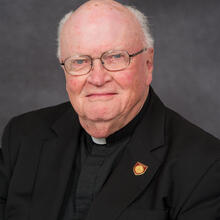Many readers of The Wall Street Journal have children in college or are guiding their offspring toward the “right choice” of a college as their secondary school years wind down. So it was not surprising to find a feature article in the Journal’s “Wealth Management” section last fall with the headline “Why Focusing Too Narrowly in College Could Backfire.” Note the preposition in, not on.
The article, written by Peter Cappelli, a professor at the Wharton School of the University of Pennsylvania, is directed toward what Mr. Cappelli calls the “venture-capitalist parent,” and the subhead offers these words of warning: “Students are told [to] learn the subjects that will best land them a job when they graduate. But that could be the worst thing they could do.”
All parents are looking toward a job after graduation for sons or daughters just launching their collegiate careers. But who knows what type of job and where those jobs might be? “The trouble is that nobody can predict where the jobs will be—not the employers, not the schools, not the government officials who are making such loud calls for vocational training,” writes Mr. Cappelli. “The economy is simply too fickle to guess way ahead of time, and any number of other changes could roil things as well.” In other words: Today’s hiring patterns are unreliable guides to tomorrow’s job openings.
A bar graph depicting employer priorities accompanies his article. It is instructive not only for parents but also for educators, particularly liberal arts college educators, who are losing ground to business schools in the current enrollment race. Work experience in the form of internships outpoints all other indicators that companies consider when evaluating a recent college graduate for a job. Next in line is employment during college. These two measures—internships and employment during college—are significantly more influential in the minds of potential employers than are the college major, volunteer experience, extracurricular activities, relevance of coursework, grade point average or the reputation of the college (which, surprisingly, is least significant of all to the employer). Administrators in higher education, particularly liberal arts educators who are in urban or suburban locations that are part of large population centers, should give these tea leaves a careful reading.
A Proposal
What if the typical college calendar had students going to on-campus classes only on Mondays and Tuesdays, then again on Thursdays and Fridays? This would leave every Wednesday free for off-campus internships and employment. What if the advancement officers and alumni directors on those campuses mounted major efforts to encourage local alumni, benefactors and friends of the college to provide the internships and offer part-time employment?
The successful generation of these internships and jobs would need to be complemented by creative scheduling on campus. Courses would run in 75-minute periods twice a week from early morning into the evening. Students who are not interested in taking the Wednesday internship or employment opportunity would be encouraged to spend that day on campus in labs or the library, or perhaps participating in additional independent study. An added benefit of this arrangement would be that it would discourage students from beginning the weekend partying early, as it does now for many every Thursday night.
Faculty members, particularly those accustomed to having class-free Fridays, would have to be persuaded that the change would be for the greater good of the school and their students. The cooperation of the faculty would help build a new framework for education that not only would improve employment prospects for their students, but could increase applications for admission to their schools, which then would be perceived, rightly, by prospective students as innovative and growing.
An initiative like this could give fresh meaning to slogans like the one used by Fordham University: “New York is My Campus, Fordham is My School.” Other Jesuit universities that find this idea appealing would be simply heeding the recommendation of St. Ignatius Loyola, founder of the Jesuits, who advised his early associates to locate their colleges where the students would be able to “listen to the conversation of the city.” In this arrangement, the students would have a unique opportunity to participate in the conversation of the city on a regular basis. This active engagement with the city not only made sense in Ignatius’ time, but it might also help to explain why potential employers rate work experience so highly in making their hiring decisions today.








